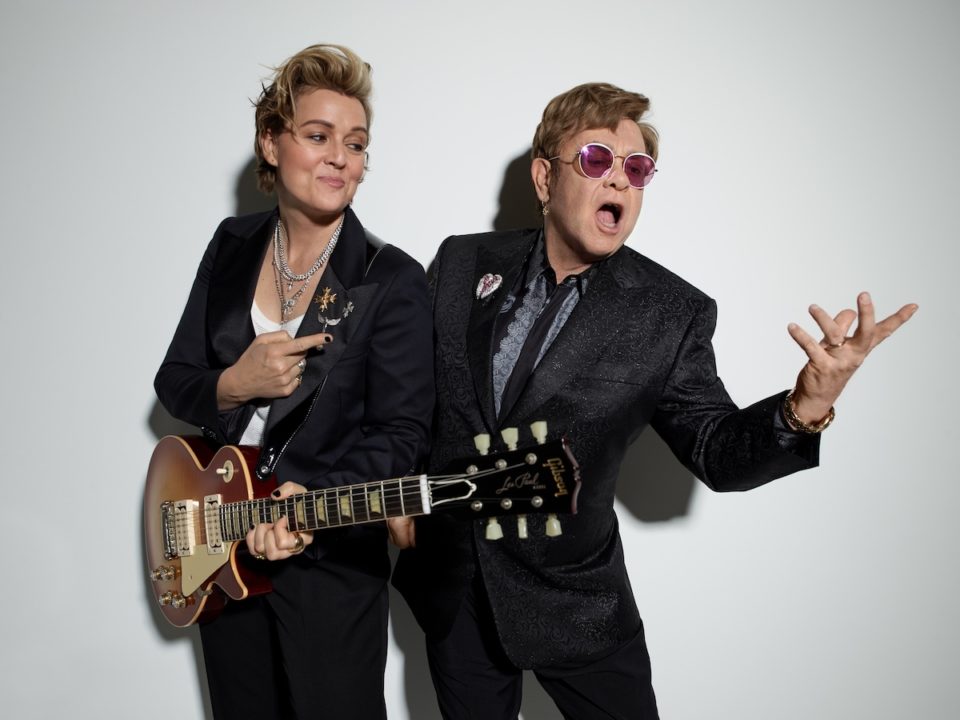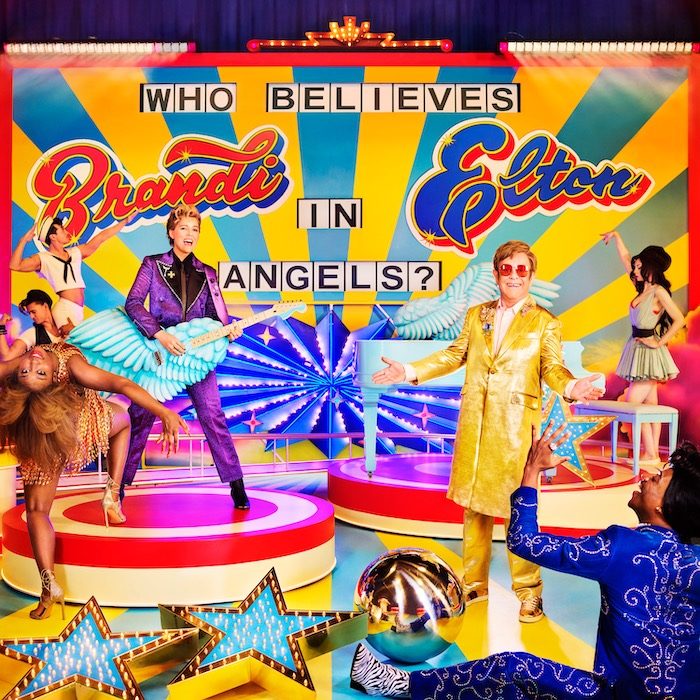
Elton John and Brandi Carlile have announced details of a new collaborative studio album, Who Believes In Angels? Listen to the title track below…
Set for release on 4 April via Island EMI Records, fans can pre-order Who Believes In Angels? to gain exclusive access for the chance to buy tickets to ‘An Evening With Elton John & Brandi Carlile’ at The London Palladium on Wednesday 26 March.
This one night only event will see Elton and Brandi grace the stage of one of London’s most iconic venues for a unique evening of performance and storytelling.
Eponymous single, Who Believes In Angels?, is out now. Listen here:
Special Collaboration
The concept for Who Believes In Angels? was devised by close friends and regular collaborators Elton John, Brandi Carlile and producer-songwriter Andrew Watt. They set out to create a genuinely collaborative studio album between Elton and Brandi.
The album would mix Elton-led songs and Brandi-led songs, with long term collaborator Bernie Taupin and Brandi both contributing lyrics, and producer and co-writer Andrew Watt acting as the producer, mediator and creative conduit.
Entering Los Angeles’ Sunset Sound Studios in October 2023 with a completely blank slate, they pushed each other out of their comfort zones to write and record an album completely from scratch in just 20 days. They would be backed by a world class band of musicians comprising of Chad Smith (Red Hot Chili Peppers), Pino Palladino (Nine Inch Nails, Gary Numan and David Gilmour) and Josh Klinghoffer (Pearl Jam, Beck).
A New Start
Elton says: “This record was one of the toughest I’ve ever made, but it was also one of the greatest musical experiences of my life. It has given me a place where I know I can move forward. Who Believes In Angels? feels like going into another era and I’m pushing the door open to come into the future.
“I have everything I’ve done behind me and it’s been brilliant, amazing. But this is the new start for me. As far as I’m concerned, this is the start of my career Mark 2.”
Brandi adds: “I’m still reeling from the fact that I got to do it. I think all ships rise with Elton John’s standards for songwriting, and it was an incredibly challenging and inspiring environment to work in, everybody throwing in ideas, everybody listening to everybody else’s ideas. It felt like a family.
“The world is a wild place to live in right now. It’s hard to find peace and triumph. It’s a radical act to seek out joyful and euphoric happenings. And that is what this album represents to me.”

The album features the 2025 Oscar nominated song Never Too Late, created especially for the Disney+ documentary of the same name and unveiled last year.
Tracklisting
The Rose Of Laura Nyro
Little Richard’s Bible
Swing For The Fences
Never Too Late
You Without Me
Who Believes In Angels?
The River Man
A Little Light
Someone To Belong To
When This Old World Is Done With Me
To pre-order Who Believes In Angels? and the chance to buy tickets for An Evening With Elton John & Brandi Carlile at The London Palladium, click here
Read More: Top 40 Essential Elton John Songs
The post Elton John and Brandi Carlile announce new studio album appeared first on Classic Pop Magazine.
